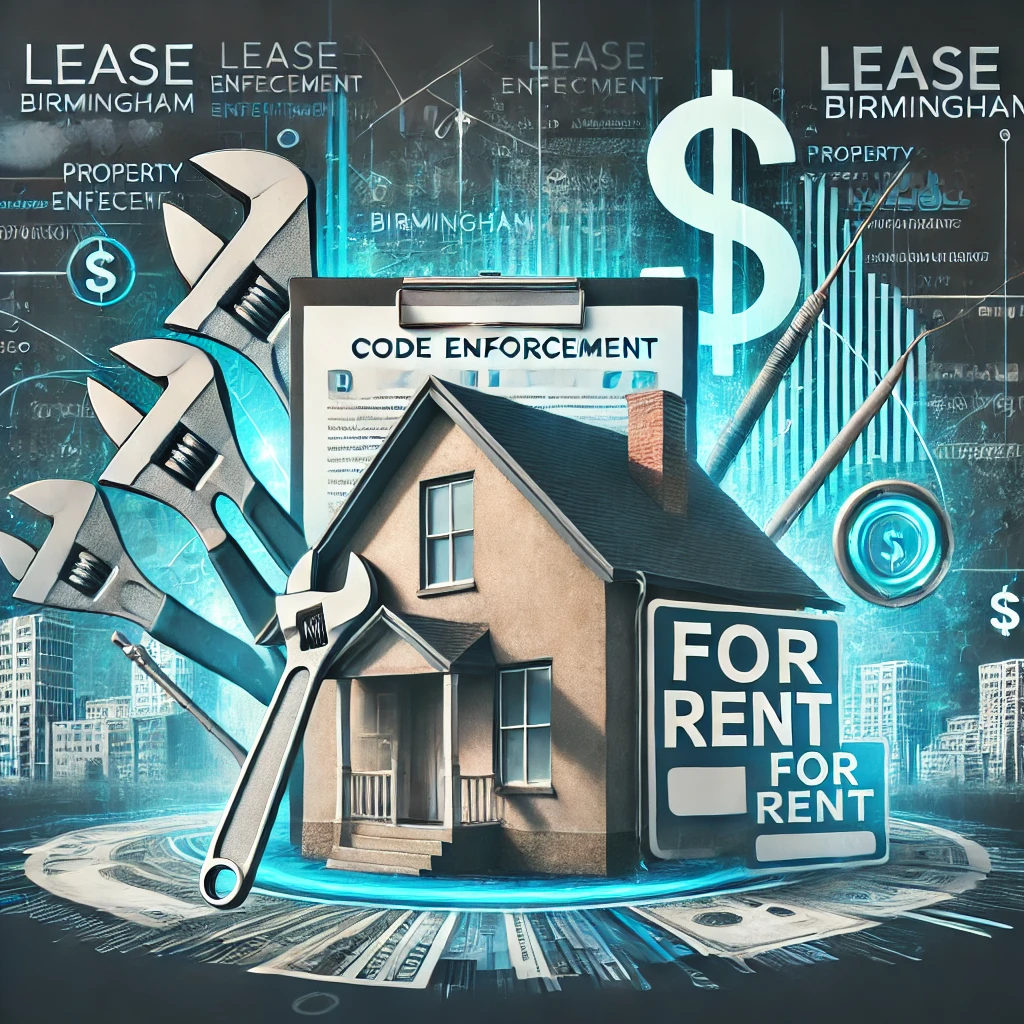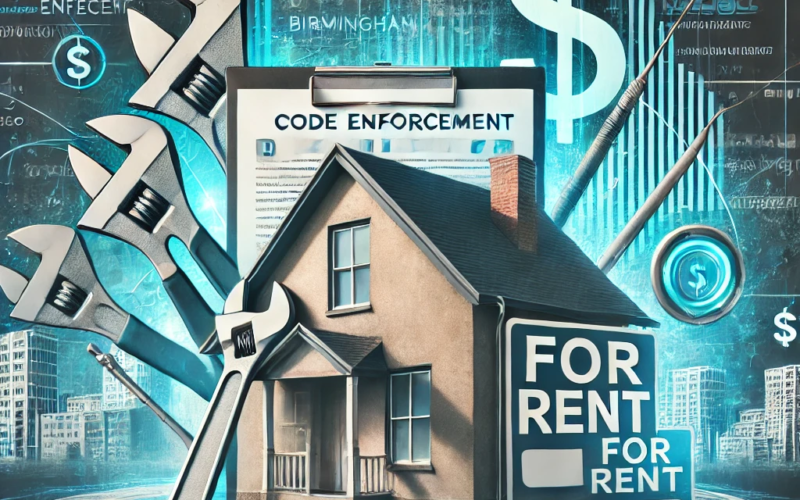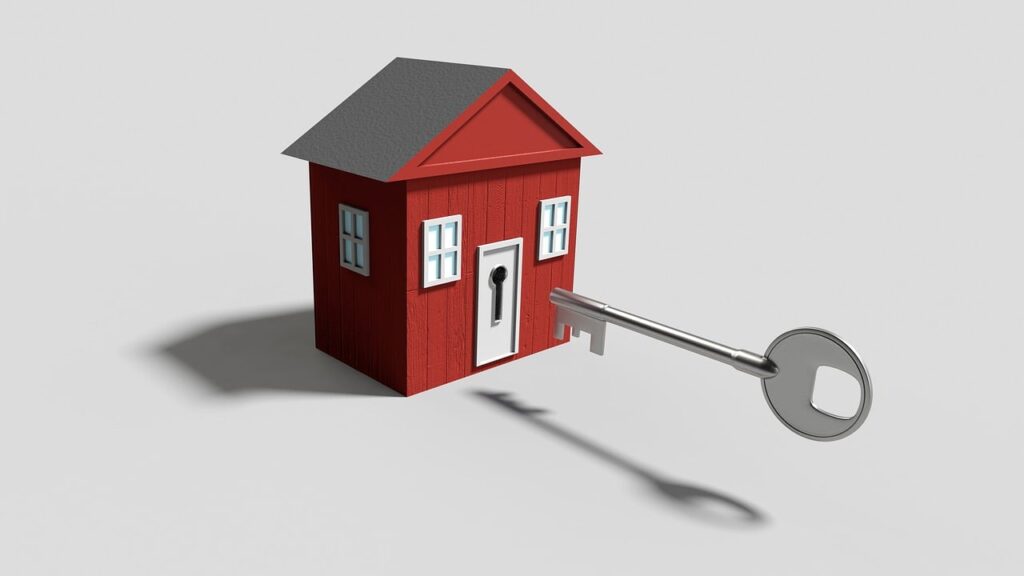The Impact of Property Code Enforcement on Rental Investments in Center Point, Alabama: What Landlords Need to Know
Introduction
Property code enforcement plays a crucial role in shaping the rental landscape for landlords, tenants, and investors alike. For property owners in Center Point, Alabama, understanding and complying with local property codes can significantly impact their rental investments. Code violations not only risk financial penalties but can also lower property value and tenant satisfaction. In this article, we will explore the ins and outs of property code enforcement in Center Point, its impact on rental investments, and what landlords need to know to stay compliant and profitable.
Understanding Property Code Enforcement in Center Point
What Is Property Code Enforcement?
Property code enforcement refers to the set of regulations designed to ensure that residential and commercial properties meet specific health, safety, and building standards. These codes are implemented by local authorities to protect the wellbeing of residents and maintain property values within the community. In Center Point, Alabama, property code enforcement primarily focuses on maintaining safe living conditions and preventing neighborhood decline by ensuring that property owners keep their rentals up to standard.
Key Authorities in Charge of Code Enforcement in Center Point
The City of Center Point works in conjunction with local Birmingham officials to ensure strict property code compliance. This includes the enforcement of building codes, fire safety regulations, zoning laws, and occupancy requirements. Property owners who fail to comply with these regulations face fines, repair orders, or even legal action. Center Point Code Enforcement Guidelines offer detailed insights into the regulations and the authorities responsible for enforcing them.
For property owners and investors unfamiliar with local laws, working with a professional property management company, such as Lease Birmingham, can be invaluable in navigating and complying with local regulations.
Common Code Violations for Rental Properties
Safety Regulations and Building Codes
One of the most common areas of concern for landlords is ensuring that their rental properties meet basic safety standards. These include functioning smoke detectors, fire extinguishers, and proper exits. Inadequate heating, faulty wiring, or improper ventilation can lead to hefty fines and put tenants at risk. It is essential for landlords to understand the safety regulations enforced in Center Point to avoid such issues.
Maintenance Requirements for Landlords
Keeping rental properties well-maintained is another significant component of property code enforcement. Landlords are responsible for ensuring that properties remain habitable and safe for tenants. This includes addressing issues such as plumbing leaks, mold growth, and structural damage. Failure to comply with these maintenance requirements can lead to code violations and financial penalties. Staying on top of these requirements is easier with the help of a professional management team, such as those offering residential property management services through Lease Birmingham.
Zoning Laws and Their Effect on Rentals
Zoning laws dictate how properties can be used within a specific area, and violating these laws can lead to serious consequences. For landlords in Center Point, ensuring that their property complies with local zoning regulations is crucial. These laws can limit how many units a property can have, what type of tenants can occupy it, and how the property can be developed. Understanding these laws is essential to avoid costly fines and forced modifications.
How Code Enforcement Impacts Rental Investments
Financial Penalties and Fines
One of the most immediate consequences of property code violations is financial penalties. Fines for violations can range from minor infractions to significant amounts depending on the severity of the issue. Repeat offenses can increase these penalties and may even lead to legal action, further increasing costs. It’s critical for landlords to regularly inspect their properties and stay compliant with local codes to avoid such financial setbacks.
Impact on Property Value and Marketability
In addition to fines, property code violations can severely affect the value and marketability of a rental property. Properties that are not up to code may see their market value decrease, and landlords may struggle to find tenants willing to move in. Potential renters often look for properties that are safe, clean, and well-maintained, and any hint of neglect can discourage them. Compliance with local codes can help maintain or even increase a property’s value, making it more attractive to both renters and future buyers. More information on how local ordinances affect property value can be found in this Investopedia article.
How to Avoid Code Violations as a Landlord
Regular Maintenance and Inspections
To avoid the pitfalls of property code violations, landlords should prioritize regular maintenance and inspections. Keeping an eye on the structural integrity of the property, plumbing systems, electrical systems, and overall cleanliness ensures that the property remains compliant with local regulations. For landlords who manage multiple properties or lack the time to conduct thorough inspections, working with a property management service can make a significant difference. Lease Birmingham’s residential property management services offer comprehensive maintenance solutions to help landlords stay compliant.
Partnering with a Professional Property Manager
One of the best ways to avoid code violations is by partnering with a professional property manager. A property manager can help ensure that properties are regularly inspected, maintained, and kept in compliance with local regulations. They also handle tenant relations, which can reduce the likelihood of complaints that could lead to code violations. Lease Birmingham offers property management services for various property types, including multifamily properties, which can ease the burden for landlords.
The Role of Property Management in Handling Code Enforcement
Responsibilities of Property Managers in Code Compliance
Property managers play a crucial role in ensuring that rental properties remain compliant with local codes. They are responsible for conducting regular inspections, addressing maintenance issues, and staying up-to-date on changes to property laws. By hiring an experienced property management company like Lease Birmingham, landlords can avoid many common violations and ensure that their properties meet all necessary standards.
Working with Tenants to Maintain Code Standards
Tenant cooperation is also essential in maintaining code compliance. Property managers serve as the primary liaison between landlords and tenants, educating tenants on their responsibilities and ensuring they adhere to the standards required for the property. Property managers can handle tenant complaints, maintenance requests, and ensure that all necessary repairs are made in a timely manner. Lease Birmingham’s affordable housing property management services provide landlords with the support they need to maintain tenant relations and stay code compliant.
Case Study: Code Enforcement in Center Point
A Look at Recent Enforcement Trends
Recent years have seen a rise in code enforcement activity in Center Point as local authorities aim to maintain the quality of rental properties and improve the overall safety of neighborhoods. This has had a significant impact on rental investments, with many landlords finding themselves facing new regulations and increased scrutiny. According to Lease Birmingham’s analysis, the rising interest in rental markets in Center Point has led to more investment in rental properties, but it has also prompted stricter enforcement of property codes.
What Landlords Need to Know About New Legislation in Center Point
Recent Changes in Code Enforcement Laws
Changes in local legislation can have a direct impact on how landlords manage their rental properties. In Center Point, recent updates to building and safety codes have placed additional responsibilities on property owners. These changes include stricter requirements for property maintenance, tenant safety, and building standards. Landlords should stay informed about these changes by consulting local regulations, such as Alabama Landlord-Tenant Law, to avoid falling out of compliance.
How Code Enforcement Affects Renters
Tenant Rights and Code Violations
Property code violations not only affect landlords but also have direct implications for tenants. Tenants have the right to live in safe, habitable conditions, and they can file complaints with local authorities if their rental unit does not meet these standards. In many cases, tenants are protected from eviction or retaliation if they report code violations. Understanding tenant rights is crucial for landlords to avoid legal disputes and maintain positive tenant relations. Information on HUD tenant rights provides further guidance on the subject.
The Role of Tenants in Reporting Code Issues
Tenants play a role in ensuring that properties remain compliant with local codes. They are often the first to notice maintenance issues and should report these problems to their landlords or property managers as soon as possible. Failure to address these issues can result in fines or legal action for landlords, which makes tenant communication critical. Property managers, such as those at Lease Birmingham, can serve as the key point of contact between tenants and landlords to resolve code issues swiftly.
Financial Impact of Code Violations on Landlords
The Cost of Fixing Violations
When a property is found to be in violation of local codes, the cost of repairs can quickly add up. In many cases, landlords are given a deadline to fix the issue or face additional penalties. Addressing violations promptly can help landlords avoid further financial losses. These repairs may range from fixing faulty wiring to replacing outdated plumbing systems, all of which can be costly but necessary to keep the property compliant.
Insurance Implications of Code Non-Compliance
Non-compliance with property codes can also impact a landlord’s insurance coverage. Many insurers require properties to meet certain safety and building standards. Failure to comply with these can result in higher premiums or even loss of coverage altogether. It’s essential for landlords to remain compliant to avoid complications with their insurance policies. More information on rental property insurance and its relationship to code compliance can be found in resources like this guide to landlord insurance.
Ensuring Long-Term Compliance for Rental Success
The Importance of Staying Informed
Code enforcement regulations can change over time, and landlords must stay informed to ensure compliance. Keeping up with changes in local laws can help avoid unexpected penalties and fines. Regularly checking resources such as the Alabama Landlord-Tenant Law is a good practice to stay informed about the latest changes that may affect rental properties in Center Point.
Utilizing Property Management Services for Compliance
One of the best ways to ensure long-term compliance is by hiring a reputable property management company. Property managers can handle everything from routine inspections to tenant relations, ensuring that properties meet all local code requirements. For property owners with commercial or residential properties, companies like Lease Birmingham offer tailored services to keep properties in compliance with local laws.
Conclusion
Property code enforcement is a critical aspect of rental property management in Center Point, Alabama. For landlords, understanding the regulations and staying compliant can mean the difference between a successful, profitable investment and costly fines or legal issues. By prioritizing maintenance, staying informed about changes to local codes, and working with professional property management services like Lease Birmingham, landlords can ensure their properties remain compliant and continue to thrive in the growing Center Point rental market.
Frequently Asked Questions (FAQs): The Impact of Property Code Enforcement on Rental Investments in Center Point, Alabama
1. What is property code enforcement?
Property code enforcement refers to the regulations and standards that landlords must follow to ensure their properties are safe, habitable, and compliant with local laws. These codes cover everything from building safety to zoning and tenant living conditions.
2. Who is responsible for enforcing property codes in Center Point, Alabama?
Local authorities, such as the City of Center Point, are responsible for enforcing property codes. They inspect properties, issue citations for violations, and ensure landlords comply with safety and building standards.
3. What are the common code violations for rental properties?
Common violations include inadequate heating, faulty electrical wiring, lack of proper ventilation, broken smoke detectors, plumbing issues, and failure to maintain the property’s structure and cleanliness.
4. How can code violations impact rental investments?
Code violations can lead to hefty fines, repair costs, legal action, and reduced property value. They also make the property less attractive to potential tenants, which can lower occupancy rates.
5. How can landlords avoid property code violations?
Regular property inspections and maintenance are key. Landlords should also stay informed about local regulations and partner with professional property managers who can help them stay compliant.
6. What are the penalties for non-compliance with property codes?
Penalties vary depending on the severity of the violation but can include fines, legal fees, or even court-ordered repairs. In extreme cases, properties can be condemned or landlords can face lawsuits.
7. Do tenants have any responsibilities related to property code enforcement?
Yes, tenants must report maintenance issues to landlords or property managers and ensure they do not intentionally damage the property. Tenant cooperation is crucial in maintaining code compliance.
8. How can partnering with a property management company help with code compliance?
Property management companies conduct regular inspections, handle maintenance requests, and ensure that the property remains compliant with local laws. They can reduce the burden on landlords by managing tenant relations and addressing code-related issues.
9. How often should landlords inspect their rental properties for compliance?
Landlords should conduct inspections at least annually, although quarterly or bi-annual inspections are ideal for staying on top of maintenance and ensuring that properties meet code requirements.
10. Can property code enforcement affect property insurance?
Yes, non-compliance with property codes can result in higher insurance premiums or even loss of coverage. Insurance providers often require properties to meet safety standards, and violations can jeopardize coverage.




